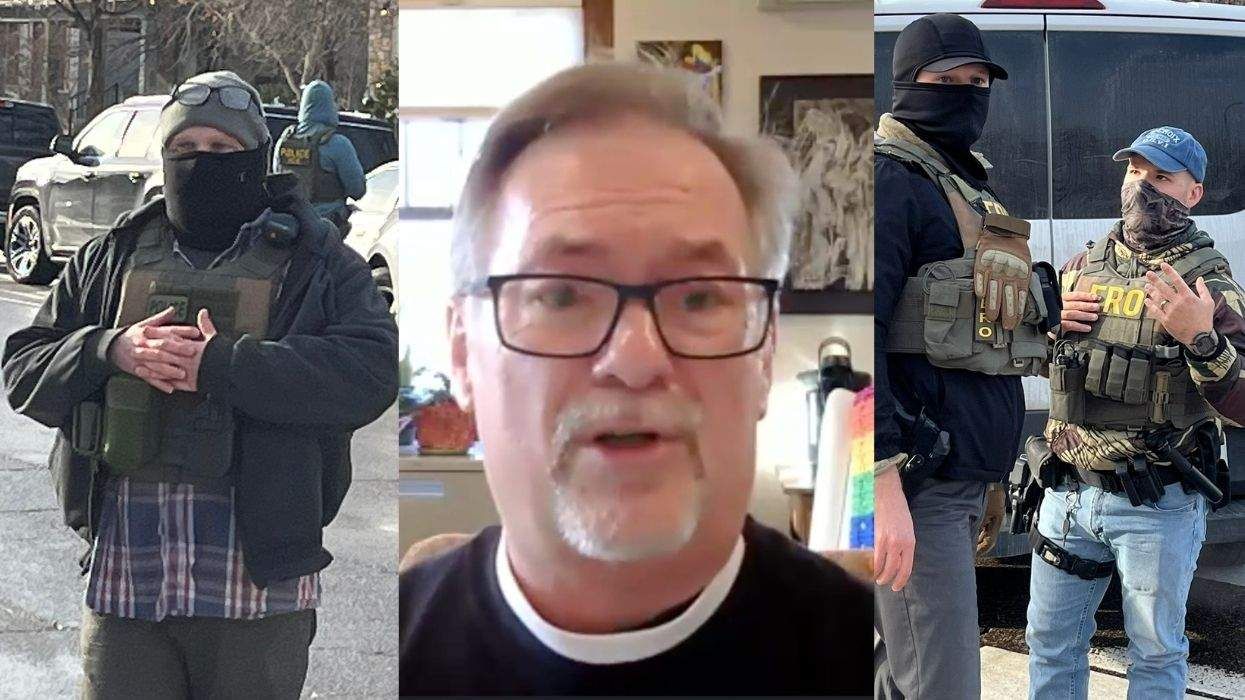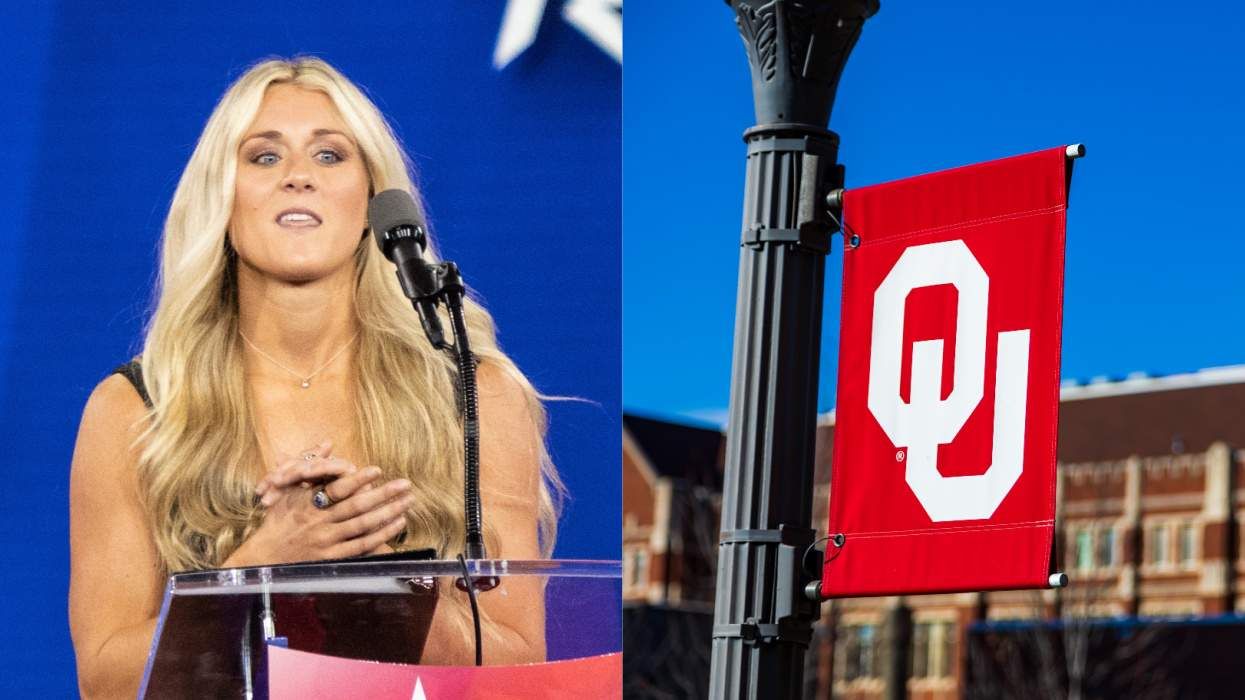Originally published by The 19th.
In the aftermath of the 2020 presidential election, researcher R.G. Cravens saw a headline about the importance of LGBTQ+ voters. How would results have changed, he wondered, LGBTQ+ religious people stayed home on Election Day? But when he went to review exit polling, he found his question was unanswerable: The survey was done in waves, and questions about religious affiliation and LGBTQ+ identity were never asked together.
That lack of data isn’t unusual, said Cravens, now a senior research analyst at Southern Poverty Law Center (SPLC) and author of the forthcoming book “Yes Gawd! How Faith Shapes LGBT Identity and Politics in the United States.” High-quality quantitative studies about religious LGBTQ+ people are few and far between; most of the research that does exist has been released in the past decade.
It’s estimated that 5.6 percent of American adults identify as LGBTQ+ and roughly half consider themselves a person of faith. Researchers studying religious LGBTQ+ people run into issues common to working with small populations: It’s difficult to get a large enough sample for meaningful analysis, and that work is resource-intensive. But bias also plays a role, as many people incorrectly believe religion and queer people to be incompatible.
That idea has a political purpose: As religious right-wing ideologies gain popularity among people in power, it is easier to justify the systematic denial of LGBTQ+ rights when they are portrayed as a community clearly delineated from the faithful. Proof of religious LGBTQ+ people pushes back against hateful movements by showing faith and queerness are not exclusive.
Religion can play a large role in the lives of LGBTQ+ people, even if they currently do not consider themselves religious. A recent non-representational study of 1,255 LGBTQ+ adults, conducted by several fellows at the nonpartisan nonprofit Public Religion Research Institute (PRRI), found that the majority of those surveyed were raised religious. Among those who now identified as religiously unaffiliated, a third still “felt a connection to their religious heritage.”
More data like this can support deeper narratives about religion and LGBTQ+ people, said Tyler Lefevor, associate professor of psychology at Utah State University and one of the PRRI fellows. As a psychologist, he’s interested in how religion continues to impact the lives of LGBTQ+ people who leave restrictive traditions — a common experience illustrated by surveys like the one he co-ran.
“What I see is that people step out into an LGBT community that's supposed to be really loving and accepting, but find themselves really rejected by the community because they don't look and act and talk like other LGBT people,” Lefevor said. “Because their values are still conservative, their beliefs are still conservative, they may hold on to aspects of their religion and that makes them stand out.”
Higher visibility of religious LGBTQ+ people can help others reframe their distress as a societal issue, not a personal one, said Lefevor.
“I think there has been a dearth of research on the religious experiences of LGBTQ Americans because the default assumption often is that if you're part of the LGBTQ community, by definition, you're probably not religious,” said Melissa Deckman, CEO of PRRI.
Deckman said this narrative is often clear in the media, where stories abound about religious denominations that oppose LGBTQ+ rights.
Data is missing on religious LGBTQ+ people for multiple reasons: there are gaps in demographic data collection in general surveys — like in the case of not asking whether people were religious and LGBTQ+ in exit polls — and in surveys specifically designed to study religious experiences. The former is a result of a cycle of marginalization in the social sciences, Cravens said, where LGBTQ+ people are seen as non-normative and not worthy of independent study.
Cravens pointed to the case of the General Social Survey (GSS), one of the longest-running surveys of American social and political life conducted by NORC at the University of Chicago. The GSS began measuring attitudes toward homosexuality in 1978 but didn’t ask about same-sex sexual activity until 10 years later. And the survey only asked respondents to self-identify their sexual orientation in 2008 — 30 years later.
“We knew that homosexuality was a concept worthy of studying or asking straight people about, but we didn't consider understanding the sexual identities of the people we were asking these questions from until much later,” Cravens said. “Heteronormative assumption feeds a data gap of LGBTQ+ experiences in social scientific research.”
Specifically when studying religion, “there's a lot of work on the attitudes of religious people toward LGBTQ people, but very, very, very little about the attitudes of LGBTQ people toward religion,” said Lefevor.
More large-scale studies about religious experiences can create space for new stories. It also helps paint a picture of religion in America.
Pew Research Center, a nonpartisan nonprofit research institute, last ran its Religious Landscape Survey in 2014, which had a sample size of 35,071 American adults. Because of the scale, researchers were able to break out the religious composition of LGBTQ+ people. But a lot can change in 10 years.
One of the most up-to-date studies on LGBTQ+ religious life is PRRI’s annual American Values Survey, which is the result of over 20,000 interviews across the nation. The survey has asked about the sexual orientation and gender identity of respondents since 2019.
While it’s true that some religious doctrine is explicitly against homosexuality, that information can’t be used to assume the beliefs of queer people, said Greg Smith, associate director of religion research at Pew. For example, similar shares of straight and queer people identify as Catholic despite the church viewing homosexuality as immoral.
“One of the things studies about religion have taught me is that it's really not safe to assume too much based on what you think you know about the traditions or doctrines of a particular religion,” Smith said.
Changes in religious beliefs and behavior writ large tend to happen for two reasons: changes in subgroups or larger demographic shifts, Smith said. As more people identify themselves as LGBTQ+, that has “downstream effects” on religious composition as a whole.
That being said, some of the attitudes LGBTQ+ people have about religion are tied to other demographic factors, said Anna Brown, a research associate at Pew Research Center. “LGBT people tend to be younger, on average, they tend to be more liberal on average, and younger and more liberal people also tend to be less religious on average.”
The size of surveys needed to get adequate sample sizes is a financial burden. “It's enormously expensive to get really good, gold-standard probability-based samples of lots of Americans,” Deckman said. “Funding is an issue because LGBTQ Americans make up a smaller portion of the U.S. population.”
Cravens knows this intimately. While working on his dissertation in 2016, he wanted to issue a short questionnaire to a random sample of 1,100 LGBTQ+ people. He was quoted a mind-boggling $56,000. He had to switch methodologies to a non-representative sample to accommodate his grad-student budget.
When the barriers to quality surveys at scale make it difficult to document the experiences of millions of religious LGBTQ+ Americans, that gap clearly benefits actors who would prefer to pretend those categories are mutually exclusive.
Christian nationalists, who believe the United States is a Christian nation and its laws should stem from Christian doctrine, are one of those groups. While the ideology has been around for 50 years, recent research has shown the beliefs have gained traction with more Republicans today. Newly minted House Speaker Mike Johnson has a long history with the Alliance Defending Freedom, a Christian nationalist legal group behind many pushes for anti-LGBTQ+ legislation, spanning from attacks on trans athletes to supporting the case that lead to the Supreme Court’s contentious ruling in 303 Creative LLC v. Elenis, which gave a Colorado wedding website designer the right to refuse service to LGBTQ+ couples.
While not an intentional undermining, the lack of data on religious LGBTQ+ people makes it more difficult to prove their existence.
“The notion that LGBTQ people can't be religious is very much a function of a political construct by the religious right to say, ‘This group of people isn't like us. They're not religious like we are,’” Cravens said. “And it's easier to exclude, it's easier to discriminate against, it's easier to take away rights from people who aren't like us.”















Charlie Kirk DID say stoning gay people was the 'perfect law' — and these other heinous quotes
These are some of his worst comments about LGBTQ+ people made by Charlie Kirk.